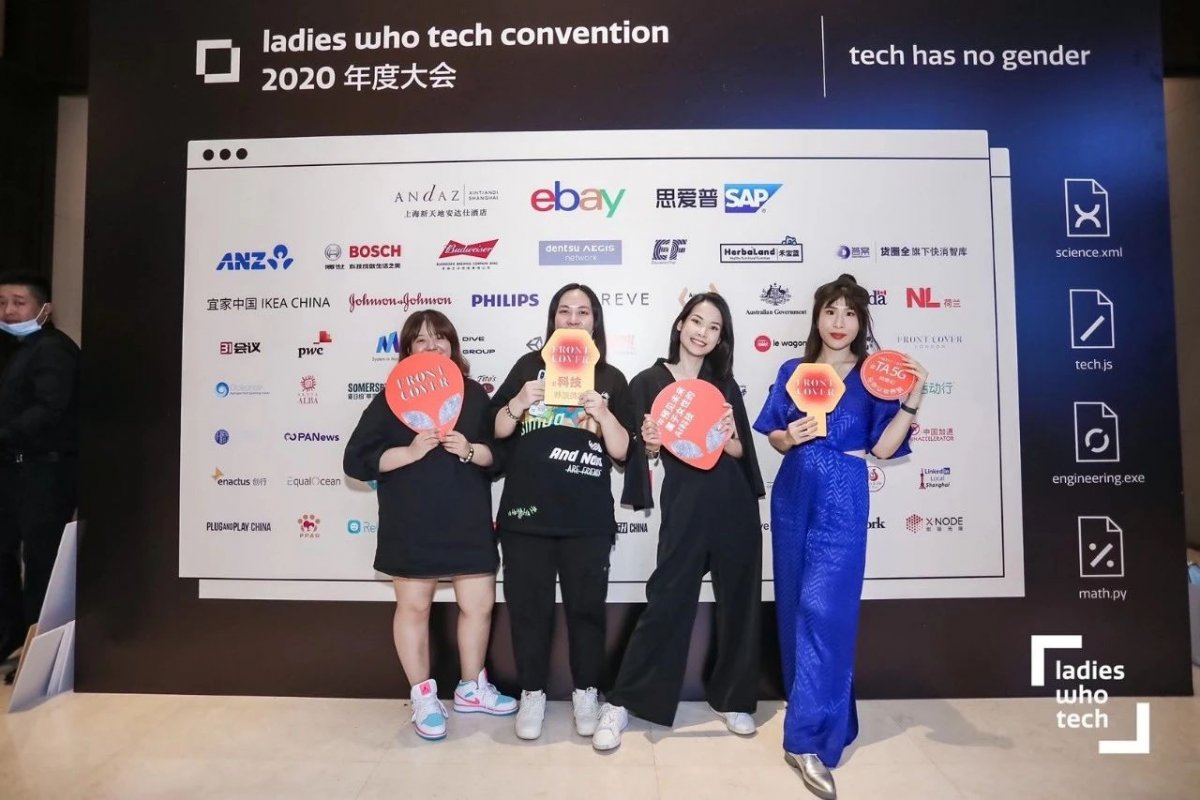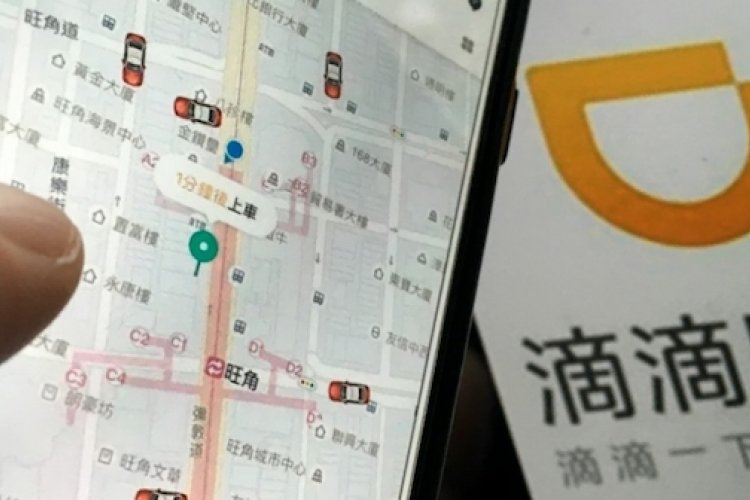Front Cover x Ladies Who Tech: Nina Rong, Proud to be a Geek Girl
This article was originally published on Ladies Who Tech (WeChat ID: LadiesWhoTech), which aims to tell the stories of Beijing's burgeoning tech industry and the women behind it. It is part of a collaboration with beauty tech company Front Cover London.
Translated from Chinese by Liz W, Valerie Chen, Lucy Lin.
Pale, thin, wearing glasses and boring – was that what appeared in your mind when you hear the term “geek girl”?
But if you meet Nina Rong, a chemical engineering graduate who deployed AI solutions for companies such as Shenzhen Airport and China Southern Power Grid, you’d gain a different perspective.
Currently in her first year at Peking University’s MBA program, Nina is also a writer, an avid traveller (26 countries!) and an expert in digital marketing and community relations for high tech brands – not what you’d expect from someone who identifies herself as a geek, right?

For years, the word “geek” and “nerd” have become ubiquitous in the fields of science, technology, engineering and math (STEM). It’s used to stereotypically describe someone who’s socially awkward, always keeping their head down, and has no life outside of the lines of code they’re developing or the research they’re conducting.
“Honestly, if someone called me a geek, I’d be really happy,” Nina told Front Cover. “I will tell them that ‘geek’ is the perfect representation of my love for technology and is a compliment for my passion and focus for each project I’m working on.”
“We need to bring in more role models of women in science and technology – especially in media representation – and let them know that yes, there are women in STEM who read a ton of books, write amazing code, have tremendous confidence, knows how to put on makeup and party like there’s no tomorrow!” she said.
Being super smart, friendly and attractive, Nina definitely is one of these women.
“I wear dresses, heels and makeup when I go out with friends. I embrace my feminine side,” she said, adding that her first encounter with Front Cover was at this year’s Ladies Who Tech annual conference.
“Front Cover was one of our sponsors for the convention and I’m really happy to see a beauty brand that is focused on tech capabilities, developing innovative products that help us look good without damaging our skin, and willing to break the stereotype of ‘women in tech’,” she said.
“Not to mention that their matte lipsticks have amazing payoff, are really long-wearing yet feel super comfortable on the lips – it just stays on throughout the day! I can finally wear lipstick every day without worrying about flakey lips or lip wrinkles,” she added.

Nina is also one of many women in STEM who’s trying to shift the cultural assumption of the profession away from the stereotype of the mad scientist with crazy hair, or the social outcast living in a dark basement.
In fact, Nina, along with her fellow STEM professionals, has hobbies, friends and lives outside of their challenging and enriching jobs. They excel in their field, but they’re also people who understand the world around them and can interact comfortably with society. These are the qualities that make them excellent engineers and researchers who can change the world for the better.
“Sadly, social stereotypes exist for both gender to this day – that women are more suited to be proper, submissive housewives who take care of the children while men should pursue a successful career. Our society believes that women are not suited for careers in STEM because we have not given them the chance to explore these fields. The same goes for men,” she noted.
Luckily for Nina, her interest in tech and sciences developed – stereotype free – early on thanks to her mother.
“My mom has a PhD in environmental sciences from Wuhan University – so she’s always cultivated a STEM-rich learning environment for me at home. We’d explore chemical reactions such as why do eggs solidify when being heated, and why we see our breath when it’s cold outside,” she said.
“It wasn’t until university that I found out there were so few women in science – only one-third of my chemical engineering class at University of Waterloo were female, and that’s already a high ratio compared with mechanical engineering and electronic engineering majors,” she added.

Girls are often brought up to believe that STEM are “masculine” topics and that female ability in this field is innately inferior to that of males. At the same time, the traditional sense of the term “geek” may have a negative connotation and put off young girls.
They appear to lose interest in STEM subjects with age, and lower levels of participation are already seen in advanced studies at secondary level. By higher education, women represent only 35 per cent of all students enrolled in STEM-related fields of study, UNESCO reported.
In order to reach out to the missing two-thirds of young women missing from Nina’s chemical engineering class, we need to really show them what a female STEM professional’s career really looks like. These role models can love tech, science and math while also being fun and social people with broad interests outside of work.

“Any positive language that puts ‘women’ and ‘geeks’ together will help re-define our society’s understanding of ‘geek girls’. I want our society to understand how cool and amazing it is to be a geek – and more importantly, to attract more young girls to go into STEM!” Nina said.
That’s why we need more female professionals in STEM like Nina to whom girls can relate and help change perceptions. Geeks in STEM are creative, fun and cool – and they collaborate with other people every day to make immense contribution to the improvement of humanity.
Nina, who also volunteers as the community manager at Ladies Who Tech’s Beijing chapter, is committed to working with male allies to close the gender gap in STEM.
“Just like the development of the Linux system, we need people from all over the world and from different industries to participate in the transformation of gender equality, and only a successful and supportive community can bring all of us together.”
READ: Ladies Who Tech: Fiona Fang on the Importance of Data Literacy
Images: Nina Rong, Xin Ai, Lin Huang







